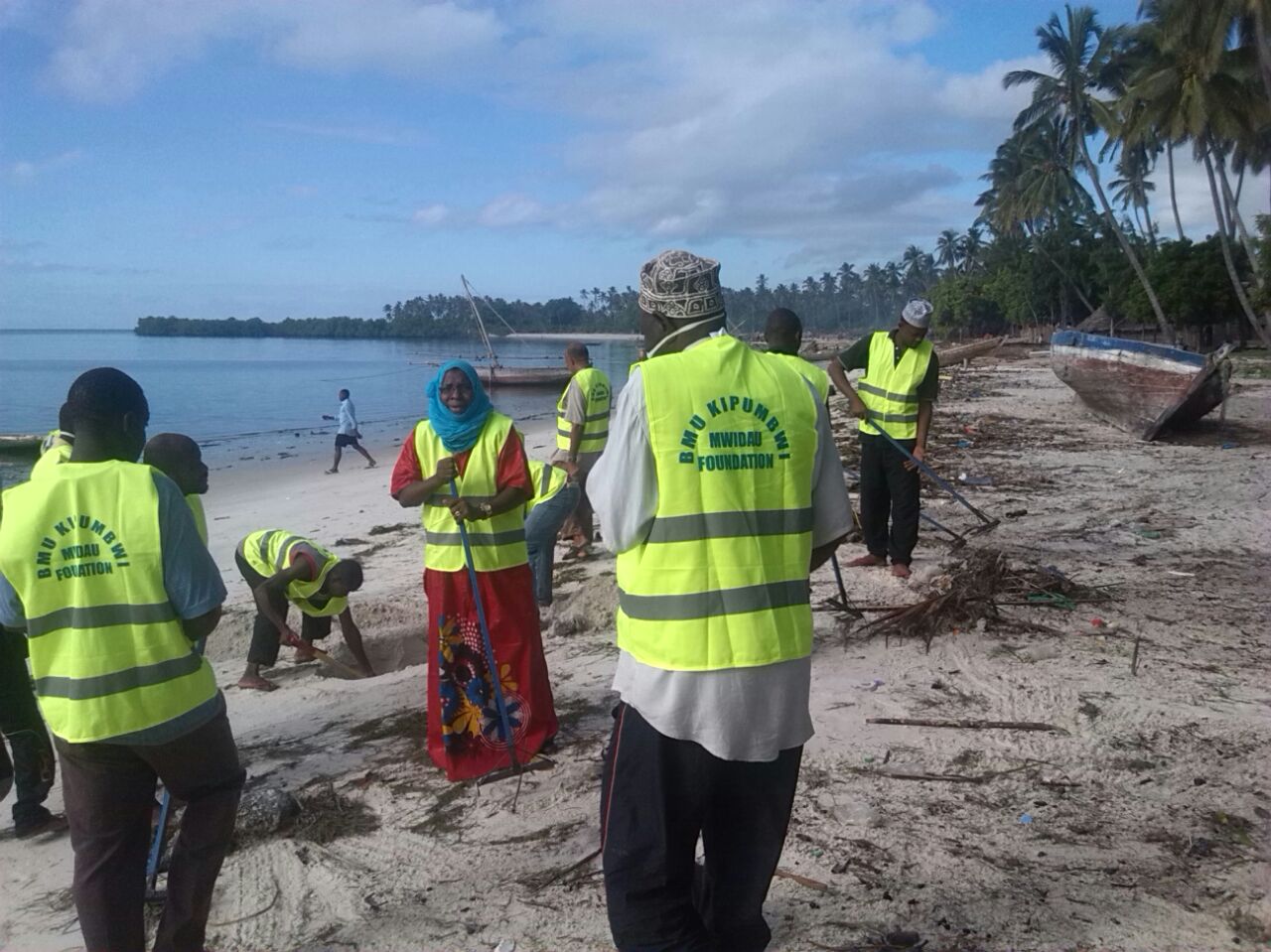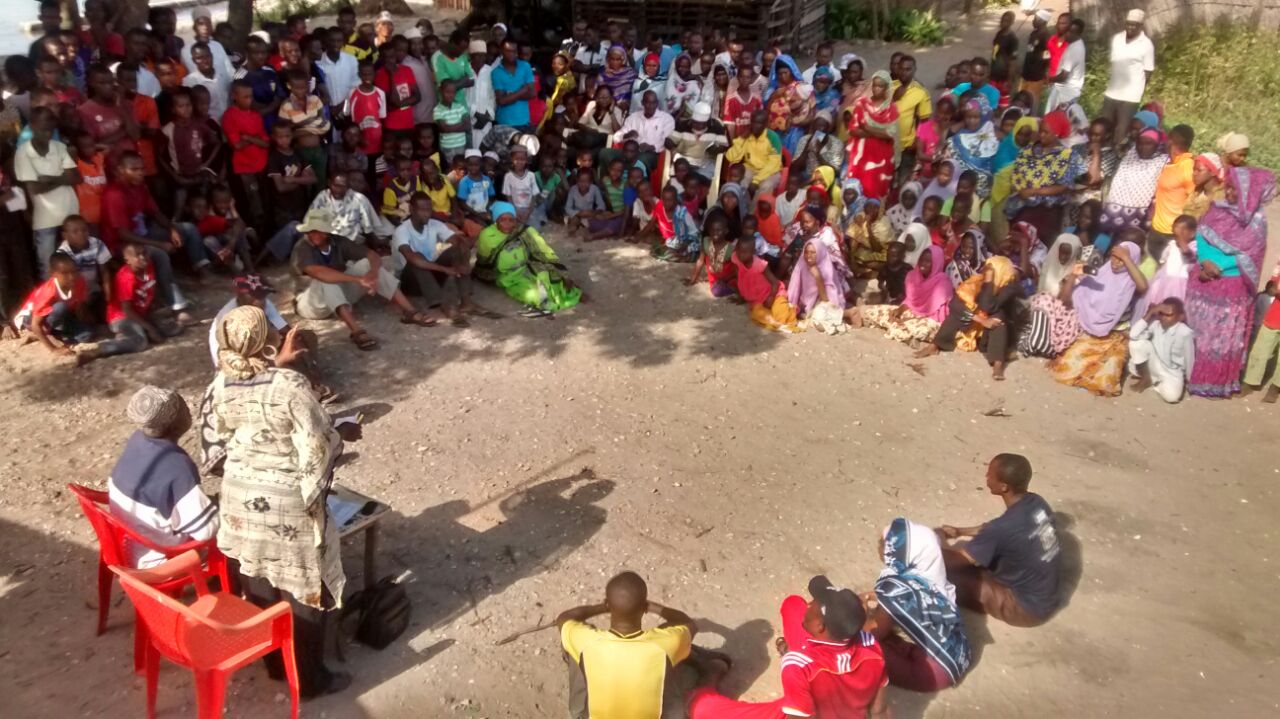Community awareness of the impacts of poor waste management
Beach Cleaning with MP (centre)
An education and outreach programme (e.g. community theatre, radio campaign, community events) is implemented to raise awareness of waste management, stimulate initial dialogue and influence attitude and behaviour changes. Community theatre is a very successful tool to achieve this. Up to 5 members of the community are trained as data collectors and spend a week interviewing citizens and key stakeholders in order to collect ‘data’ on attitudes, behaviors and perceptions towards waste management Data are analyzed and translated into a series of storylines. A second group of citizens (up to 15) are trained as ‘artists’ and participate in a week of training (story-telling, role playing and scripting) and rehearsals. At the end of the week the theatre performance takes place. At critical points in the performance, an MC invites the audience to ask questions, exchange ideas and experiences, and debate solutions to waste management challenges. The community theatre is followed up with practical outreach activities such as beach clean-ups to introduce the concept of the four R’s (refuse, reduce, reuse, recycle). Village leaders are encouraged to take part in practical activities to promote good governance and strong leadership.
Community participation, support from village level government, financial resources
Storylines created in community theatre projects will often touch upon the issue of weak governance. It is important that the MC of the final performance is skilled in managing the debate otherwise it can lead to a situation where leaders feel their position is being undermined. Debates can also be quite divisive with many opposing views so a skilled MC should be able to provide a platform for citizens to speak out while facilitating constructive dialogue. The MC should maintain a neutral and balanced position so that the views of citizens are upheld rather than the views of the MC himself.


